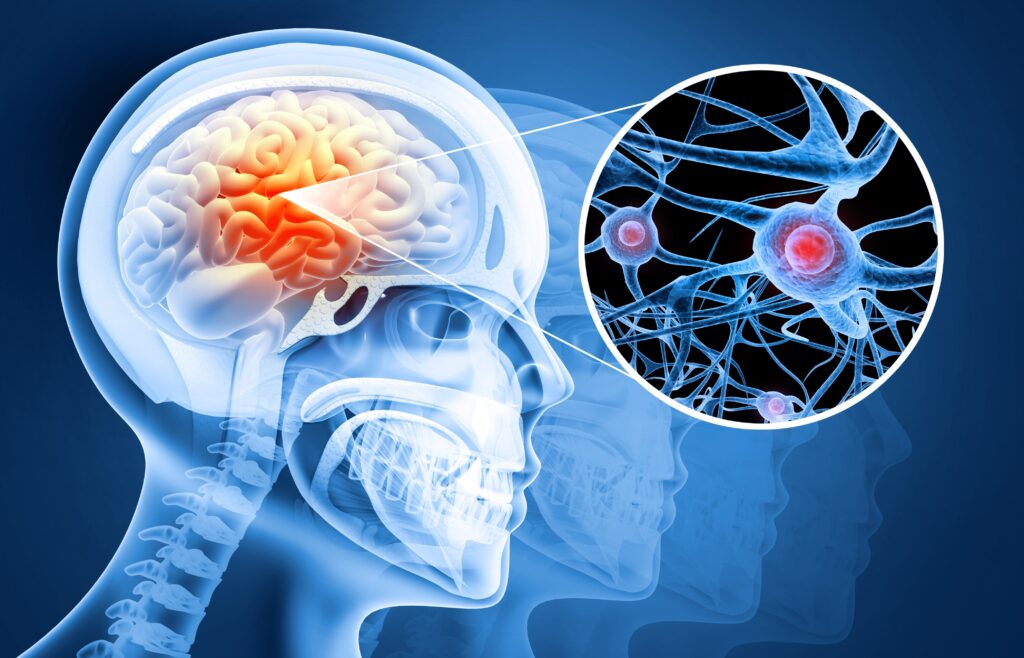Suffering a concussion may seem like a straightforward medical situation, but the truth is that it can lead to a myriad of challenging legal issues. Although concussions are common injuries, the effects can be long-lasting and debilitating, often requiring extensive medical treatment and resulting in significant financial losses.
In such cases, it is in your best interest to seek legal representation to navigate the ins and outs of injury insurance claims and potential lawsuits and negotiate fair compensation for your injuries and damages. Don't face the legal ramifications of a concussion alone – contact an experienced Tampa personal injury attorney near you to protect your interests and obtain the justice you deserve.
Table of contents
- Understanding the Legal Ramifications of a Concussion
- Evaluating Liability in Concussion Cases
- Types of Concussions
- What Causes Concussions
- Long-Term Impact of Concussions
- Damages in Concussion Cases
- Did You Suffer a Concussion that Wasn't Your Fault? Contact a Seasoned Personal Injury Lawyer Today for Help
Understanding the Legal Ramifications of a Concussion
A concussion is a type of traumatic brain injury caused by a bump, blow, or jolt to the head. Commonly associated with sports injuries and car accidents, concussions can happen in various situations, such as slip and fall accidents or workplace incidents. Regardless of the cause, if you believe you have suffered a concussion, seek medical attention immediately.
While your first priority should always be your health and well-being, it's also necessary to address the potential legal issues that may arise following a concussion. Here are some reasons why you need a lawyer to help you through this process:
Understanding the Medical and Financial Impact

Concussions can result in a range of symptoms, including headaches, dizziness, memory problems, and sensitivity to light or noise. In some cases, these symptoms may persist for an extended period, leading to physical, emotional, and cognitive difficulties. To ensure you receive proper medical treatment and support, it is necessary to understand the potential long-term impact and the associated financial costs.
A personal injury lawyer who has experience with concussions can assess your situation comprehensively. They can help you understand the potential medical complications associated with concussions and estimate the long-term financial implications you may face. By doing so, they can determine the appropriate compensation you should seek.
Dealing with Insurance Companies
Following a concussion, you may need to file an insurance claim to cover your medical expenses and other damages. Insurance companies often try to minimize their payout or even deny claims altogether, putting the burden on the injured party to fight for fair compensation. Dealing with insurance companies can be intimidating and complex, especially when you're already dealing with the physical effects of a concussion.
Having a personal injury attorney by your side can level the playing field. They have experience negotiating with insurance companies and understanding the tactics they may use to undermine your claim. By working with a lawyer, you can ensure your rights are protected and pursue the compensation you deserve.
Gathering Evidence for Your Case
To build a strong case, you must have evidence that proves the liability of the at-fault party. This may include medical records, accident reports, witness statements, and other evidence supporting your claim. For someone who has just suffered a concussion, dealing with these legal matters can be overwhelming at best.
A personal injury attorney has the experience to gather and organize the necessary evidence to support your case. They can also work with medical professionals to document your injuries accurately and link them to the incident that caused them. With a lawyer's help, you can strengthen your case and increase the likelihood of a successful outcome.
Negotiating a Fair Settlement
In many concussion cases, the at-fault party's insurance company will attempt to settle the claim before it goes to court. While accepting a settlement may seem appealing initially, it is crucial to understand the long-term implications before agreeing. Once you accept a settlement, you typically forfeit your right to pursue further compensation, even if your condition worsens or additional expenses arise.
A qualified personal injury lawyer can evaluate any settlement offers and advise you on the best course of action. They have the knowledge and experience to determine what constitutes a fair settlement based on the specifics of your case. By negotiating on your behalf, they can seek the maximum compensation available.
Evaluating Liability in Concussion Cases
Determining liability in a concussion case is often challenging because it involves proving that someone else's negligence or intentional actions caused your injury. For example, if you were involved in a car accident caused by a distracted driver who rear-ended you, and you suffered a concussion as a result, you may have grounds for a personal injury claim against that driver.
To pursue a personal injury claim, you need to establish the following elements:
- Duty of Care: You must prove that the other party owed you a duty of care, meaning they had a legal obligation to act responsibly and avoid causing harm.
- Breach of Duty: You must demonstrate that the other party breached their duty of care through negligence or intentional misconduct. In the car accident scenario mentioned earlier, the distracted driver's failure to pay attention to the road would be considered a breach of duty.
- Causation: You must establish a direct link between the other party's breach of duty and your concussion. In this case, you need to show that the distracted driver's actions directly caused your head injury.
- Damages: You must demonstrate that you suffered actual damages due to the concussion, such as medical expenses, lost income, and pain and suffering.
Proving these elements can be quite challenging, requiring thorough investigation, gathering evidence, and in-depth knowledge of legal procedures. That's why having a personal injury lawyer on your side is necessary to build a strong case.
Types of Concussions

Concussions are classified based on the severity of the injury and its symptoms. The three main types of concussions are:
- Grade 1 Concussion: While no concussion is "mild," this is the mildest form of concussion, characterized by temporary confusion, headaches, and a brief loss of consciousness, if any. Symptoms usually resolve within a few days, and medical treatment may not be necessary.
- Grade 2 Concussion: This type of concussion is moderate in severity and may cause more pronounced symptoms, such as prolonged confusion, persistent headaches, and memory problems. Medical treatment and monitoring are typically recommended, and recovery can take weeks or months.
- Grade 3 Concussion: Also known as a severe concussion, this type of injury involves a longer-lasting loss of consciousness, more severe symptoms, and a higher risk of long-term damage. Medical attention is necessary for proper diagnosis and treatment, and recovery can be a long and daunting process.
Be sure to seek medical attention if you suspect you have suffered a concussion, as proper diagnosis and treatment are essential for your well-being.
What Causes Concussions
Concussions can occur in various situations, and understanding the causes can help you determine liability in a potential legal case. Some common causes of concussions include:
- Sports Injuries: Contact sports like football, soccer, and rugby carry a higher risk of concussions due to the physical nature of the game. Athletes may suffer concussions from collisions with other players, falls, or being struck by equipment.
- Motor Vehicle Accidents: Car accidents are a leading cause of concussions. The sudden impact of a collision can cause the head to jerk, leading to a concussion. Even a minor fender bender can result in a concussion if the head is subjected to sudden acceleration or deceleration forces.
- Slip and Fall Accidents: A concussion can occur when you fall and hit your head on a hard surface, such as a floor, pavement, or stairs. Slip and fall accidents can happen in various settings, such as workplaces, public areas, or private properties.
- Assault or Physical Altercations: Intentional acts of violence, including physical altercations, can result in concussions. Being struck in the head with a weapon or an object, or even a direct blow from a person's fist, can cause a concussion.
- Workplace Accidents: Certain occupations, such as construction or manufacturing, pose a higher risk of head injuries and concussions. Falling objects, machinery accidents, or slips and falls in the workplace can lead to concussions.
Determining the cause of your concussion is necessary when seeking legal recourse, as it helps establish liability and pursue compensation from the responsible party.
Long-Term Impact of Concussions
While most concussions resolve within a few weeks or months with proper treatment and rest, some individuals may experience long-term effects. These effects can vary depending on the severity and frequency of concussions, as well as individual factors. Some potential long-term impacts of concussions include:
- Post-Concussion Syndrome (PCS): This refers to a collection of symptoms that persist beyond the expected recovery period after a concussion. PCS can include persistent headaches, dizziness, fatigue, memory problems, difficulty concentrating, and mood changes. These symptoms can significantly impact an individual's daily life and may require ongoing medical treatment and therapy.
- Second Impact Syndrome: If an individual suffers a second concussion before fully recovering from the first one, they may be at risk of developing second impact syndrome. This rare but potentially life-threatening condition occurs when the brain swells rapidly, leading to severe neurological damage. Prompt medical attention is imperative to prevent permanent brain damage or death.
- Chronic Traumatic Encephalopathy (CTE): CTE is a degenerative brain condition that can occur after repeated head injuries, including concussions. It is commonly associated with contact sports and has been found in athletes, military veterans, and other individuals who have experienced repetitive brain trauma. Symptoms of CTE can include memory loss, confusion, mood changes, and cognitive impairment. Currently, CTE can only be definitively diagnosed postmortem through a brain autopsy.
The long-term impact of concussions highlights the importance of seeking legal representation if you have suffered a concussion due to someone else's negligence. This can help ensure that any potential long-term effects are accounted for in your compensation claim.
Damages in Concussion Cases

When seeking compensation for a concussion injury, various damages can be included in your legal claim. Damages refer to the losses and harms you have suffered as a result of the concussion, both economic and non-economic. Some common types of damages in concussion cases include:
- Medical Expenses: This includes the cost of medical treatment, including doctor visits, diagnostic tests, medications, and rehabilitation therapies. If ongoing medical care is necessary, such as for post-concussion syndrome, the cost of future medical expenses may also be included.
- Lost Income: If your concussion has caused you to miss work or resulted in a decreased earning capacity, you may be entitled to compensation for lost income. This can include both past and future lost income.
- Pain and Suffering: Concussions can cause physical and emotional pain and suffering. Compensation for pain and suffering aims to compensate for the physical discomfort, emotional distress, and loss of enjoyment of life experienced due to the injury.
- Emotional Distress: The psychological impact of a concussion can be significant, leading to anxiety, depression, post-traumatic stress disorder (PTSD), and other emotional conditions. Compensation may be sought for the emotional distress caused by the concussion.
- Loss of Consortium: If your concussion has affected your ability to maintain normal relationships with your spouse or family members, they may be entitled to compensation for the loss of consortium.
- Punitive Damages: In cases where the responsible party's actions were especially egregious, punitive damages may be awarded to punish and deter similar behavior. However, punitive damages are relatively rare and depend on the specific circumstances of the case.
When you consult with a personal injury lawyer, they can assess the damages applicable to your situation and take over the legal process on your behalf.
Did You Suffer a Concussion that Wasn't Your Fault? Contact a Seasoned Personal Injury Lawyer Today for Help
Suffering a concussion can have long-lasting effects on your health, well-being, and financial stability. Seeking legal representation is important to navigating the ensuing legal ramifications that arise from concussions and ensuring that you receive fair compensation for your injuries and damages. From dealing with insurance companies to gathering evidence and negotiating settlements, an experienced personal injury lawyer can provide the guidance and support you need during this challenging time. Don't face the legal battle alone – contact an attorney near you to protect your interests and obtain the justice you deserve.